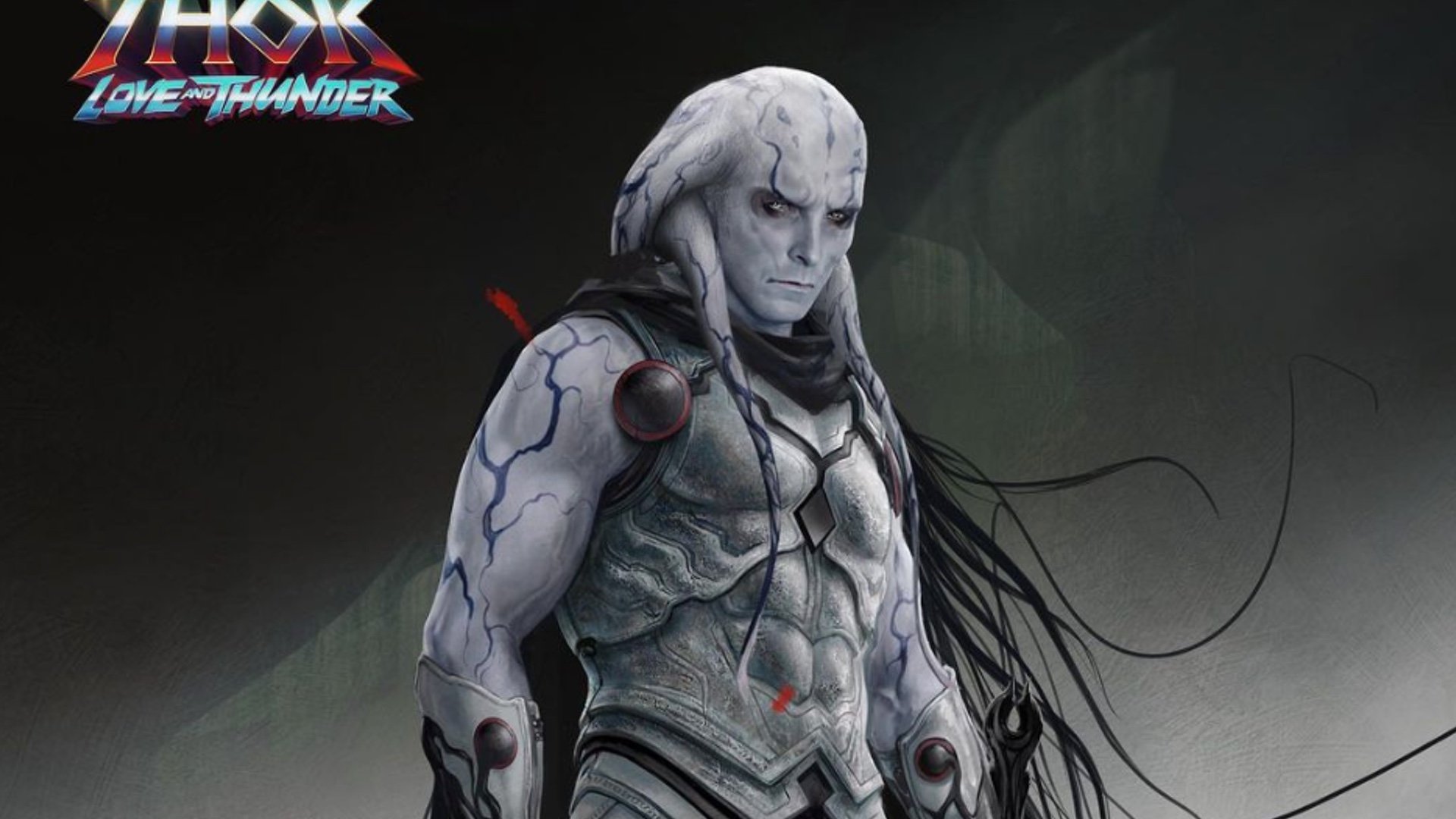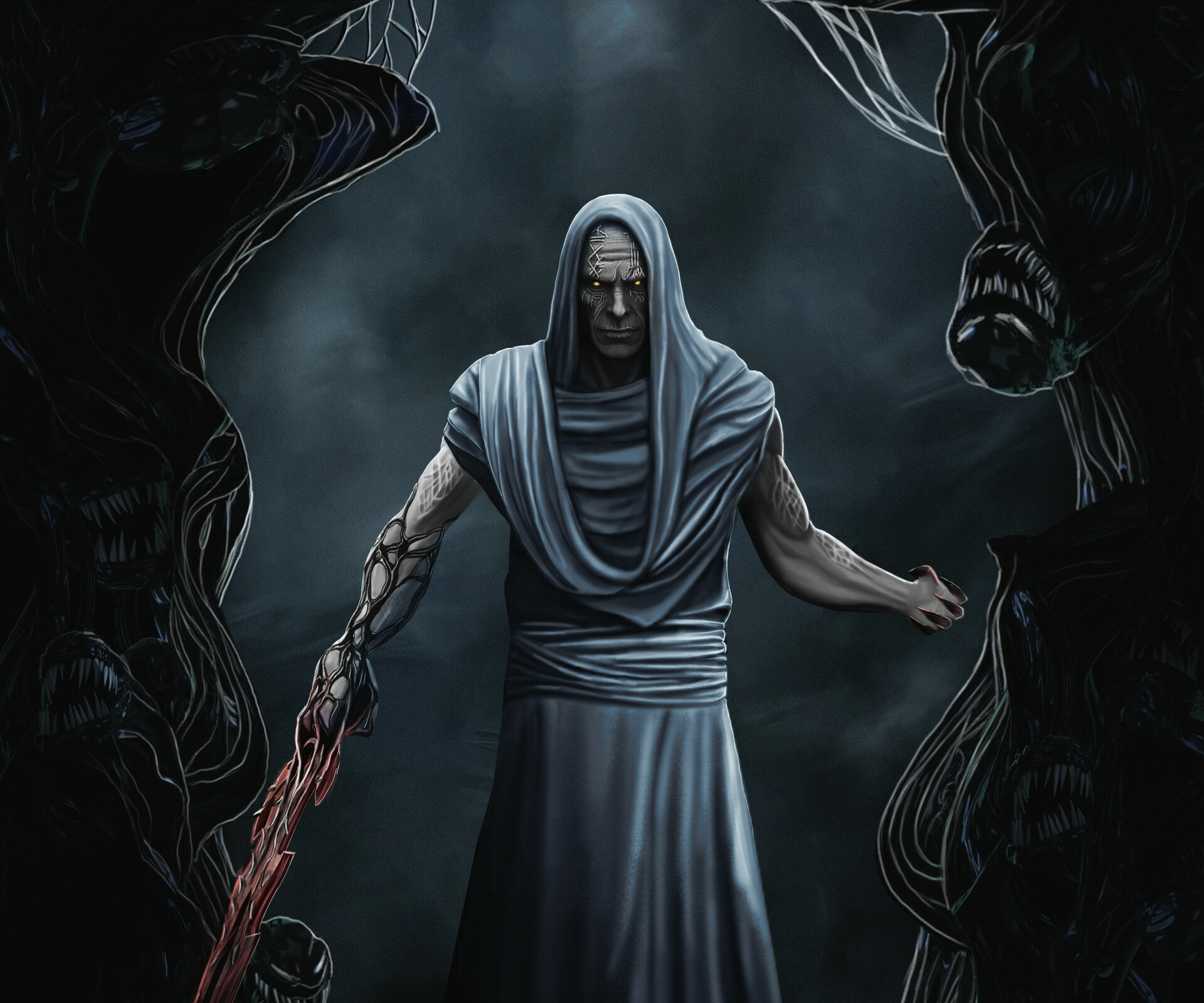Gorr The God Butcher: Unveiling The Mythical Villain's Influence In The Marvel Universe
Let’s dive straight into the cosmic chaos, because Gorr the God Butcher is not your average Marvel villain. This guy’s story is deep, layered, and packed with philosophical undertones that’ll make you question the very existence of gods. If you’re a Marvel fan, or even just someone who loves epic tales of destruction and redemption, you’re in for a wild ride. Gorr’s influence in the Marvel universe isn’t just about smashing gods—it’s about challenging the status quo, questioning divine authority, and exploring the dark corners of what makes someone a villain.
When Gorr first burst onto the scene, he didn’t just bring his god-slaying hammer, All-Black the Necrosword. He brought a whole new level of complexity to the Marvel universe. Unlike other villains who are driven by greed or power, Gorr’s motives run much deeper. His story is one of loss, anger, and ultimately, a desire for justice—or at least, his version of it.
So, why should you care about Gorr the God Butcher? Because this guy isn’t just another bad guy in a cape. He’s a symbol of rebellion against the divine, a character whose actions force us to confront uncomfortable truths about power, faith, and mortality. And honestly, who doesn’t love a good underdog story—even if that underdog happens to be a mass-murdering god-hater?
Who Is Gorr the God Butcher?
Gorr the God Butcher is one of those characters who challenges everything you thought you knew about heroes and villains. His origin story is as tragic as it gets, and it’s this backstory that makes him so compelling. Gorr wasn’t always a cosmic powerhouse; he started as a desperate father willing to do anything to save his starving family. But when the gods failed him, they sealed their fate—and Gorr’s descent into villainy began.
Let’s break it down: Gorr’s entire existence revolves around the idea that gods are corrupt, lazy, and unworthy of worship. And honestly, when you think about it, he’s kind of right. I mean, how many times have we seen gods in the Marvel universe act like entitled jerks? Gorr’s not just angry—he’s fed up, and he’s out for blood.
Origins of a God-Hater
Gorr’s journey begins on a desolate planet where he and his family are starving. He pleads with the gods for help, but they ignore him. Spoiler alert: his family dies, and Gorr snaps. This is the moment when Gorr decides that gods aren’t just negligent—they’re evil. And thus, the God Butcher is born.
- Did P Diddy Get Arrested By The Feds The Truth Behind The Rumors
- Exploring The Life And Legacy Of Sean Diddy Combs A Comprehensive Guide
It’s important to note that Gorr’s transformation isn’t instantaneous. It’s a slow burn of rage and despair that eventually leads him to wield All-Black, the Necrosword. This weapon isn’t just some random hammer—it’s a tool of cosmic destruction that amplifies Gorr’s hatred for the divine. With All-Black in hand, Gorr becomes a force to be reckoned with, capable of taking down gods with a single swing.
Gorr's Philosophy: Why Hate the Gods?
Gorr’s philosophy is simple yet profound: gods are parasites feeding off the worship of mortals. He believes that their power comes at the expense of the people they’re supposed to protect. It’s a radical idea, but one that resonates with readers who’ve grown tired of seeing gods act like spoiled brats. Gorr’s not just out for revenge—he’s trying to dismantle an entire system of oppression.
Think about it: gods in the Marvel universe often prioritize their own interests over the well-being of mortals. Thor, for example, might be a great hero, but his father Odin isn’t exactly a paragon of virtue. Gorr sees through the facade of divine benevolence and exposes it for what it really is—a lie. And honestly, who can blame him?
Is Gorr the Real Hero?
Here’s where things get interesting. Gorr’s actions are undeniably villainous—he slaughters gods left and right, after all. But his motivations are rooted in a desire for justice. He’s not just killing gods for fun; he’s trying to create a world where mortals don’t have to rely on divine intervention to survive. In a way, Gorr could be seen as a revolutionary figure, fighting against an unjust system.
Of course, that doesn’t mean his methods are justified. Killing innocent gods (or semi-innocent ones, depending on how you look at it) isn’t exactly the most ethical approach. But Gorr doesn’t care about ethics. He cares about results, and if that means spilling some divine blood, so be it.
Gorr's Impact on the Marvel Universe
Gorr’s influence in the Marvel universe can’t be overstated. His actions have far-reaching consequences that ripple through the cosmos, affecting everyone from Asgardians to Celestials. When Gorr goes on a killing spree, it’s not just gods who feel the impact—mortals suffer too. Entire civilizations are thrown into chaos as gods fall and power vacuums form.
One of the most significant moments in Gorr’s story is his confrontation with Thor. This showdown isn’t just about two guys with hammers going at it—it’s a clash of ideologies. Thor represents the traditional hero archetype, while Gorr embodies the anti-hero. Their battle is a microcosm of the larger struggle between faith and skepticism, hope and despair.
The Rise of the God-Killer
Gorr’s rise to power is a fascinating tale of cosmic politics and betrayal. As he slaughters gods across the universe, he gains allies and enemies alike. Some see him as a liberator, while others view him as a monster. But one thing’s for sure—nobody can ignore him. Gorr’s presence forces other characters to take sides, creating tension and conflict that drive the Marvel narrative forward.
And let’s not forget about All-Black, the Necrosword. This weapon is more than just a tool of destruction—it’s a symbol of Gorr’s power and influence. Without All-Black, Gorr would still be just another angry mortal. But with it, he becomes a force capable of reshaping the universe.
Gorr vs. Thor: The Epic Showdown
The clash between Gorr and Thor is one of the most epic battles in Marvel history. It’s not just a fight—it’s a philosophical debate disguised as a super-powered smackdown. Thor, the god of thunder, represents everything Gorr despises. And yet, there’s a strange parallel between the two. Both are driven by a sense of justice, albeit in very different ways.
During their battle, Thor learns a lot about himself and his role as a god. He begins to question whether he’s truly worthy of worship, and whether the gods he serves are deserving of their power. This introspection is a crucial moment in Thor’s character development, and it’s all thanks to Gorr’s influence.
Who Wins? Spoiler Alert: It's Complicated
The outcome of the Gorr vs. Thor battle isn’t as straightforward as you might think. While Thor ultimately prevails, the victory comes at a cost. Gorr’s ideas don’t die with him; they live on in the hearts and minds of those who witness his crusade. In a way, Gorr wins even in defeat because he forces the Marvel universe to confront uncomfortable truths about the nature of divinity.
And let’s not forget about the emotional toll this battle takes on Thor. By the end of it, he’s not the same god he was before. Gorr’s influence lingers, shaping Thor’s future actions and decisions.
Gorr's Legacy: Beyond the Comics
Gorr’s impact extends beyond the pages of Marvel comics. His character has inspired countless discussions about the nature of villainy, justice, and power. Fans love to debate whether Gorr is truly a villain or if he’s just misunderstood. And honestly, that’s the beauty of his character—he defies easy categorization.
But Gorr’s influence isn’t limited to the comic book world. His story has also made its way to the big screen, with the release of "Thor: Love and Thunder." In the movie, Gorr’s character is reimagined slightly, but his core beliefs remain the same. This adaptation brings his story to a wider audience, introducing new fans to the mythos of the God Butcher.
Gorr in the Movies: A Different Perspective
The cinematic version of Gorr offers a fresh take on his character. While the comics focus on his rage and destruction, the movie explores his humanity and vulnerability. This portrayal adds depth to his character, making him even more relatable to audiences. And let’s be real—Christian Bale’s performance as Gorr is nothing short of iconic.
But the movie also raises questions about how Gorr’s story translates to a different medium. Some fans argue that the film simplifies his motivations, while others believe it captures the essence of his character. Either way, Gorr’s presence in the Marvel Cinematic Universe ensures that his influence will continue to grow.
Conclusion: Is Gorr the God Butcher a Villain or a Visionary?
As we’ve explored, Gorr the God Butcher is a complex character whose influence in the Marvel universe is undeniable. He challenges our perceptions of good and evil, forcing us to confront uncomfortable truths about power and faith. Whether you see him as a villain or a visionary depends on your perspective—but one thing’s for sure: Gorr’s story is one that will linger in the minds of fans for years to come.
So, what do you think? Is Gorr a monster, or is he a misunderstood hero fighting for a better world? Leave your thoughts in the comments below, and don’t forget to share this article with your fellow Marvel fans. And if you haven’t already, check out the comics and movies to see Gorr’s story unfold for yourself.
Table of Contents
- Who Is Gorr the God Butcher?
- Origins of a God-Hater
- Gorr's Philosophy: Why Hate the Gods?
- Is Gorr the Real Hero?
- Gorr's Impact on the Marvel Universe
- The Rise of the God-Killer
- Gorr vs. Thor: The Epic Showdown
- Who Wins? Spoiler Alert: It's Complicated
- Gorr's Legacy: Beyond the Comics
- Gorr in the Movies: A Different Perspective
- What Happenedwith P Diddyinformational
- P Diddy Sex Parties An Indepth Exploration Of Controversies And Culture

Gorr The God Butcher The Marvel History Of Christian Bale's, 52 OFF

Gorr The God Butcher HD Marvel Wallpaper, HD Movies 4K Wallpapers

Who Is Gorr the God Butcher, THOR LOVE AND THUNDER's Villain? Nerdist